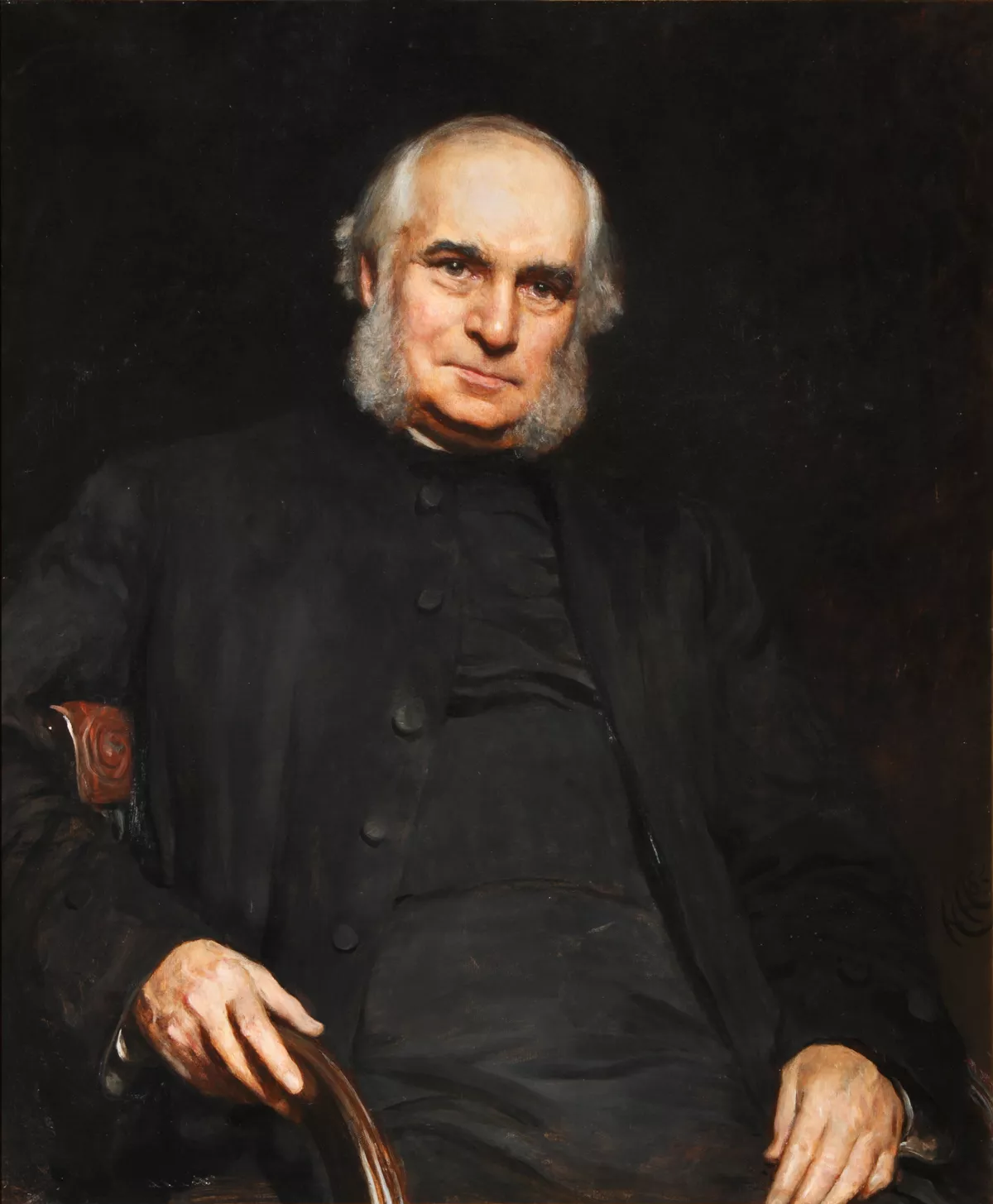 1.
1. William Stubbs was an English historian and Anglican bishop.

 1.
1. William Stubbs was an English historian and Anglican bishop.
William Stubbs was Regius Professor of Modern History at the University of Oxford between 1866 and 1884.
William Stubbs was Bishop of Chester from 1884 to 1889 and Bishop of Oxford from 1889 to 1901.
The son of William Morley Stubbs, a solicitor, and his wife, Mary Ann Henlock, he was born in a house on the High Street in Knaresborough, Yorkshire, and was educated at Ripon Grammar School and Christ Church, Oxford, where he graduated MA in 1848, obtaining a first-class in Literae Humaniores and a third in mathematics.
William Stubbs was librarian at Lambeth Palace, and in 1862 was an unsuccessful candidate for the Chichele Professorship of Modern History at Oxford.
In 1866, William Stubbs was appointed Regius Professor of Modern History at Oxford, and held the chair until 1884.
William Stubbs's lectures were thinly attended, and he found them a distraction from his historical work.
William Stubbs accepted the patronage of the Stubbs Society during his time at Oxford, where he interacted with future doyens of the historical profession.
William Stubbs was rector of Cholderton, Wiltshire, from 1875 to 1879, when he was appointed a canon of St Paul's Cathedral.
William Stubbs was a Member of the Chetham Society, and served as vice-president from 1884.
William Stubbs was a High Churchman whose doctrines and practice were grounded on learning and a veneration for antiquity.
William Stubbs's opinions were received with marked respect by his brother prelates, and he acted as an assessor to the archbishop in the trial of Edward King, Bishop of Lincoln.
William Stubbs was able to attend the funeral of Queen Victoria on 2 February 1901, and preached a remarkable sermon before King Edward VII and the German Emperor Wilhelm II on the following day.
William Stubbs was buried in the churchyard of All Saints, Cuddesdon, next to the palace of the bishops of Oxford.
William Stubbs was elected an International Honorary member of the American Academy of Arts and Sciences in 1881, an International Member of the American Philosophical Society in 1891, and a member of the American Antiquarian Society in 1897.
Until William Stubbs found it necessary to devote all his time to his episcopal duties, he had concentrated on historical study.
William Stubbs argued that the theory of the unity and continuity of history should not remove distinctions between ancient and modern history.
William Stubbs believed that the effects of individual character and human nature will render generalizations vague and useless.
William Stubbs was equally eminent in ecclesiastical history, as an editor of texts and as the historian of the British constitution.
William Stubbs edited nineteen volumes for the Rolls series of Chronicles and Memorials.
William Stubbs was a good palaeographer, and excelled in textual criticism, in examination of authorship, and other such matters, while his vast erudition and retentive memory made him second to none in interpretation and exposition.